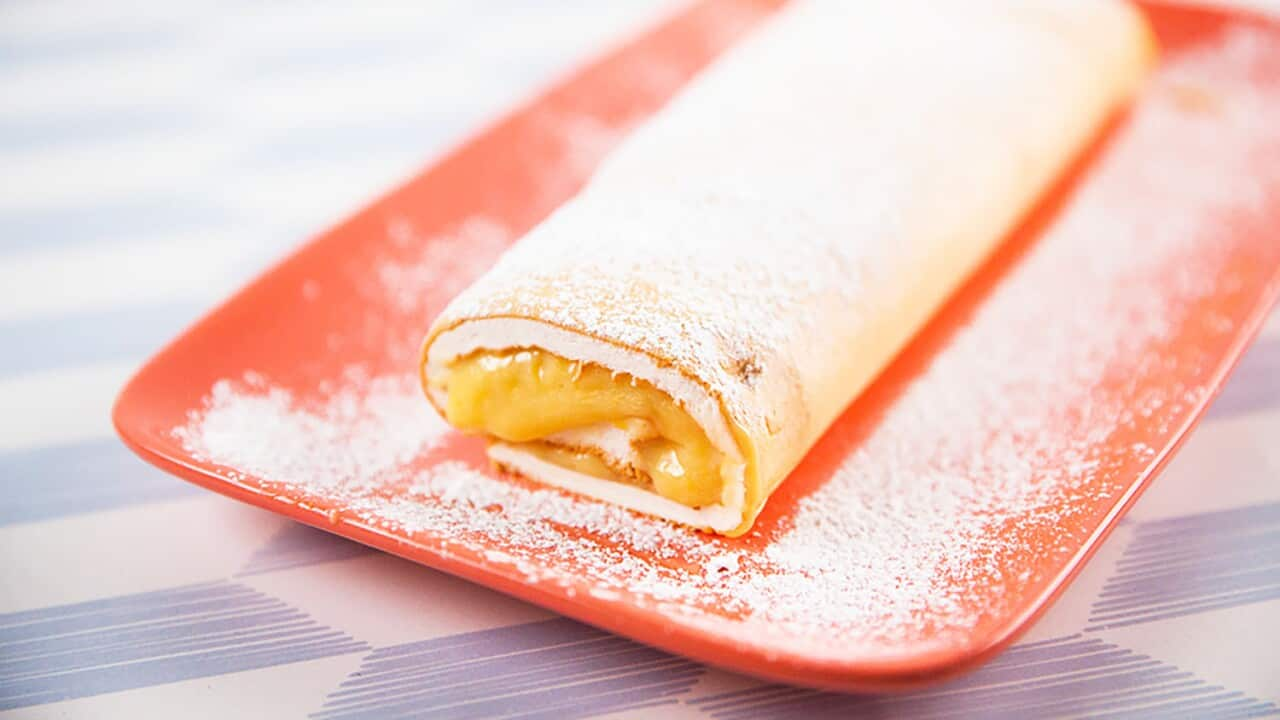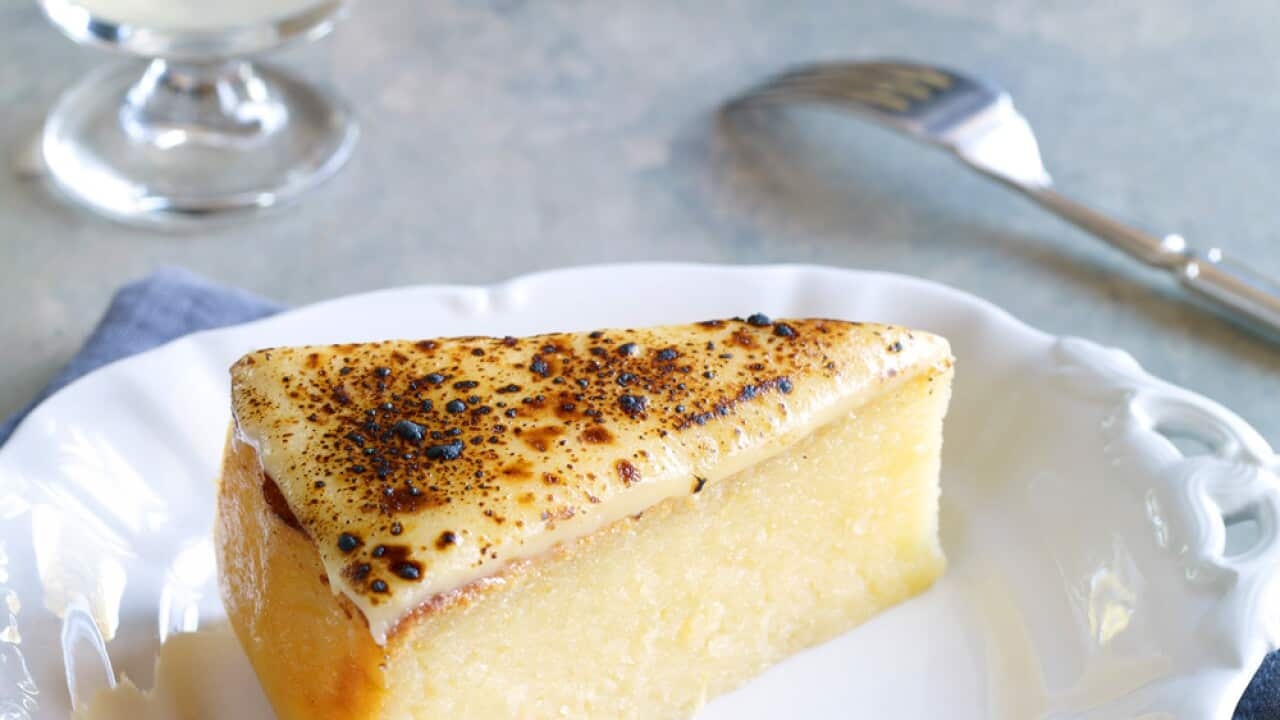--- airs weeknights on SBS Food at 7.00pm. Will Mahusay's Lunchbox Snacks episode aired Wednesday, 1 September and is ---
It's a tale as old as time, and one many first and second-generation immigrants share. That dreaded lunchbox moment where you peel back the lid to reveal your favourite home-cooked dish - sure to be made with love - and someone around you asks, "What's that funny smell?".
I remember bringing leftover pancit to school. It is one of my favourite Filipino dishes, and I swear my Mum's is the best. The soy sauce heavy noodle dish is proudly pungent, but when surrounded by compartmented Tupperware containers full of LCM bars and neatly cut sandwiches, the Tetra Pak with my mother's scribbled handwriting on it suddenly felt so out of place.
It's safe to say, though, that this experience happens less as Australia globalises more and more. Kids these days bring to school, and offices hold the occasional pot-luck lunch. While there's absolutely nothing wrong with a wrapper-covered bar and bangin' sangas, it's safe to say that the Aussie lunchbox is evolving.
For Sydney Cebu Lechon owner and proud Pinoy, , this tale was no different. Migrating to western Sydney from Cebu, the Philippines in the late '80s, Mahusay's eating experience at school varied, and this carried into his corporate world.
Could it be that the same people with the 'stinky' lunches are the pioneers of today's diverse palette?
"In primary school, we went straight into Anglo-style lunches - things like chips and poppers. My parents were so time-poor - they had to prepare lunch for four children and run off to work early in the morning," he admits. "In high school, that changed. We got older, and my parents would just cook extra the night before knowing the leftovers would be taken to school for baon (lunch)."
In his small-town high school, he was able to find fellow ethnic-leftover-bringers. "We all took comfort with each other."
However, as Mahusay entered the corporate adult world, baon in tow, he'd get subtle comments about the heavy garlic smell. While that wasn't his motivation to leave, he decided to take the leap away from his corporate life to carry on his father's food legacy and in turn opened Sydney Cebu Lechon. "It wasn't an easy decision. I was used to the safety, but after going through my father's books, I rolled the dice and took the risk."
COOK WILL'S BANANA-CUE

Banana-cue
In kitchen, Will shares - a quick and simple snack that draws from traditional Filipino cooking methods. While he couldn't bring the barbeque element fully into the studio, he was very happy to represent a piece of the cuisine.
Food has played such a major role in Australia's multiculturalism. Food is a fire starter - it piques curiosity.
As Filipino food emerges out from under the Asian food umbrella, Mahusay strives to put the cuisine's best foot forward and opened the lechon restaurant outside of its Blacktown comfort zone.
"I believe [the risk] paid off. Filipino food is grabbing a lot of attention in the most positive sense," says Mahusay. "Lechon is really just roast pork. This isn't a foreign concept to a lot of different cultures. People just aren't familiar with the lechon name and the aroma. I kid you not - as soon as [non-Filipino people] bite into it, they just give me that, 'Where have you been all my life?' look," he proudly exclaims.
Could it be that the same people with the 'stinky' lunches are the pioneers of today's diverse palette? "Food has played such a major role in Australia's multiculturalism. Food is a fire starter - it piques curiosity."
There's no knowing how our lunches will look like over the next few years, and that's okay. One thing is for sure - food continues to be the great unifier in spaces and times where it's needed most.
Love your lunchbox

Packing love into the lunchbox across the generations
Will's Pinoy pantry staples
- Vinegar (suka)
- Soy sauce (toyo)
- Fish sauce (patis)
- Garlic (bawang)
- Pepper (paminta)
Love the story? Follow the author on Instagram






